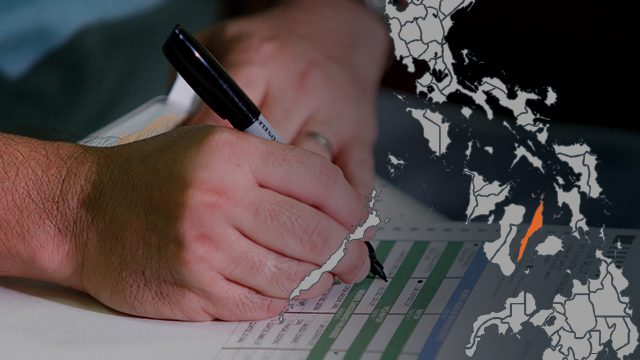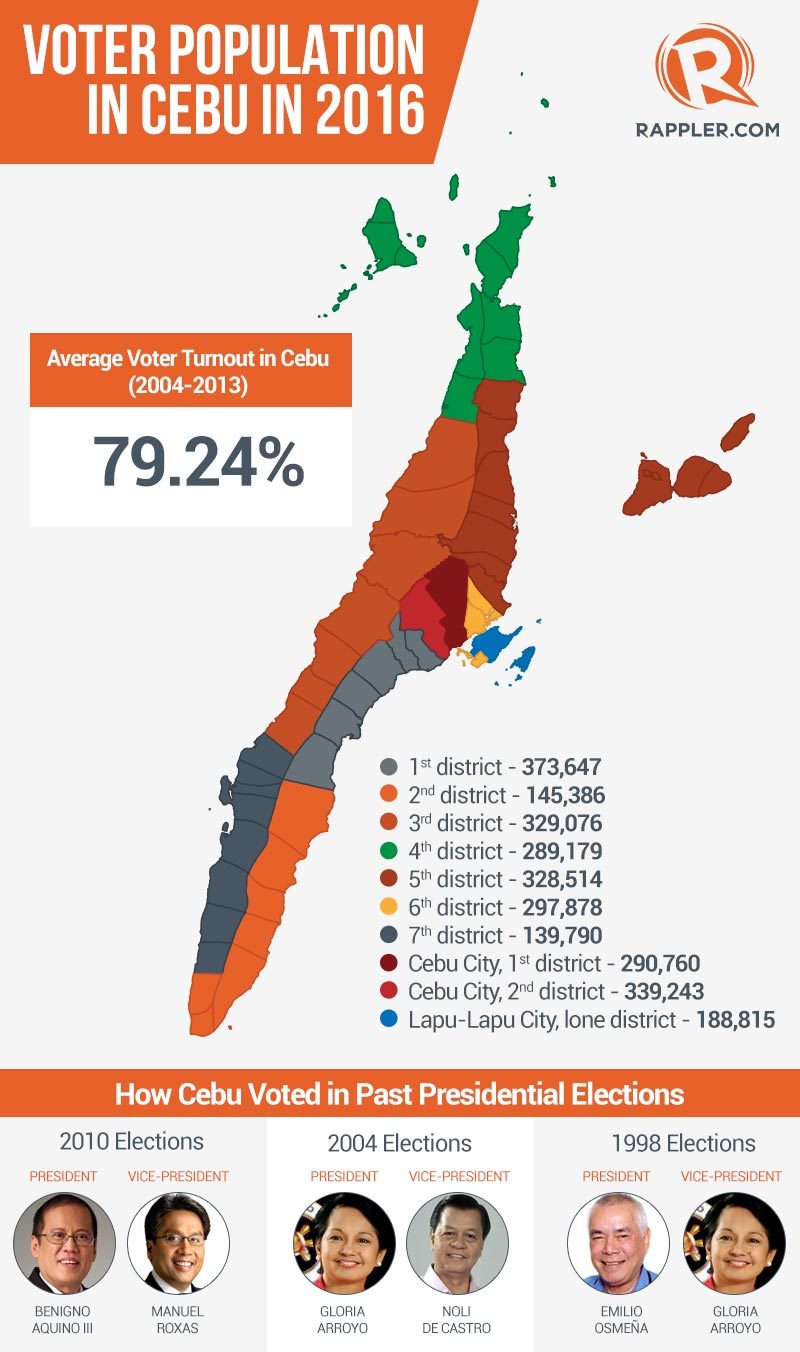SUMMARY
This is AI generated summarization, which may have errors. For context, always refer to the full article.

MANILA, Philippines (UPDATED) – With its large electorate and rich political history, the province of Cebu is a crucial battleground during elections.
On Sunday, March 20, Cebu is in the spotlight once again as its capital Cebu City hosts the second leg of the presidential debates in the run-up to the 2016 elections.
Cebu is the most populous province in the country, with at least 4.1 million Filipinos (including those in the cities of Cebu, Lapu-Lapu, and Mandaue) as of the 2010 census.
It is also the most vote-rich province, with 2,722,288 registered voters in the 2016 national elections. The number includes the 630,003 voters in Cebu City.
Female voters in the entire province slightly outnumber male voters, 52% against 48%.
Nearly a million Cebu voters belong to the youth, with 1,248,208 voters – or 45.85% of its voter population – aged 18-34. In Cebu City, 278,974 are youth voters.
Cebu province’s largest congressional districts in terms of voter population are the 1st, 3rd, and 5th districts. They surround the two legislative districts of Cebu City and the lone district of Lapu-Lapu City.
President Benigno Aquino III in September 2015 approved the creation of the 7th district of Cebu, consisting of 8 towns carved out of the province’s 2nd district.

Voter turnout
In the last 4 regular elections, Cebu had an average voter turnout of 79.24%. This is higher than the nationwide average turnout of 75.6% in the same period.
In the 2013 polls, 80.77% of registered voters in Cebu trooped to the polls, an increase of nearly 3 percentage points from 2010, when the province posted a 77.86% turnout. It is also higher than the 77.31% voter turnout for the whole country in 2013.
Cebu City posted a bigger voter turnout in 2013, at 81.36% of the voter population. In 2010, only 75% of the city’s voters turned up to cast their votes.
Electoral history
In past presidential elections, Benigno Aquino III got the most number of votes in Cebu in 2010, while Gloria Macapagal-Arroyo won in 2004. Former Cebu Governor Emilio Mario Osmeña won the presidential race in the province in 1998, but lost to Joseph Estrada in the nationwide count.
Among the candidates for the country’s top posts in 2016, at least two have scored victories in Cebu in the last two elections.
Despite losing in the 2010 vice-presidential race, Manuel Roxas II won in Cebu by a wide margin. He garnered 1,054,708 votes or 61.33% of the provincial vote, against the 414,417 votes (24.10%) earned by his closest rival and eventual nationwide winner, Vice President Jejomar Binay.
Roxas and Binay rekindle their rivalry in 2016, as both are in the 5-person contest for the presidency.
Meanwhile, in 2013, Alan Peter Cayetano led the senatorial elections in Cebu (plus Cebu City and Lapu-Lapu City), with 949,195 votes. Grace Poe, the 2013 senatorial race’s overall topnotcher, placed only 3rd in the province. In 2016, Cayetano is running for vice president, while Poe is making a bid to become the country’s next president.
Political dynasties
Among the most prominent political families from Cebu are the Osmeñas, with a lineage starting from former Philippine President Sergio Osmeña Sr. Many members of the Osmeña clan have since been elected to local and national posts, including incumbent Senator Sergio Osmeña III, current Toledo City Mayor (and former senator) John Henry Osmeña, and Cebu City mayoral candidate Tomas Osmeña (a former mayor).
Other major political dynasties in Cebu include the Garcia family, the Almendras-Magpale clan, the Gullas family in the 1st district, the Caminero family in the 2nd district, the Durano clan in the 5th district, the Rama and Del Mar families in Cebu City, and the Radaza family in Lapu-Lapu City. – Rappler.com
Add a comment
How does this make you feel?
There are no comments yet. Add your comment to start the conversation.